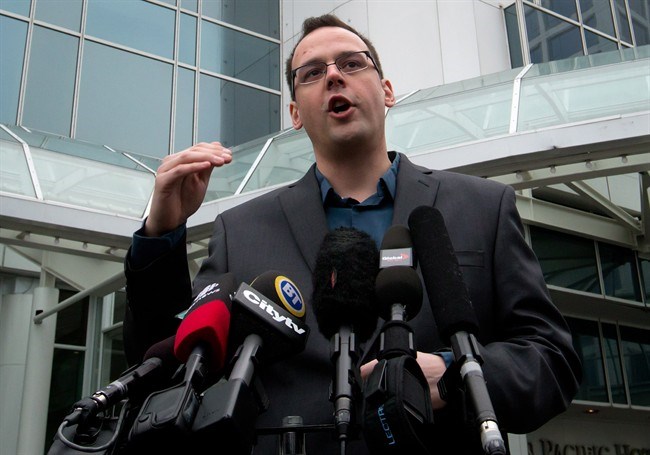The Canadian Taxpayers Federation is making a fuss over cost increases that took effect with the start of the new year, but points to some possible savings as well.
Health-care premiums, B.C. Hydro bills, auto insurance rates and property taxes are projected to increase, says Jordan Bateman, the federation’s B.C. director.
“It seems like the B.C. government just doesn’t want to give us any good news,” Bateman said.
For people with a net income of more than $30,000, annual Medical Services Plan premiums have risen by $72 for families of three or more, $66 for couples and $36 for individuals. B.C. Hydro is expected to raise electricity rates about four per cent, which the CTF estimates will cost a typical household $50 more this year. The Insurance Corp. of B.C. is expected to raise basic auto insurance by $44.40 for a typical car.
Municipalities are still working on their budgets, but the CTF has yet to find one that is freezing or reducing property taxes. Assessment jumps could add even more for many taxpayers.
B.C. Ferries has permission from the Ferries Commissioner to increase fares as much as 1.9 per cent this year.
Bateman said all governments should look at the services they provide, and focus on providing core services.
“This is why we beat the drum for efficiency. It’s not efficiency for efficiency’s sake, it’s efficiency so you can provide these services in a way that you don’t have to go back to taxpayers year after year after year,” Bateman said.
Stan Bartlett, chairman of the fledgling advocacy group Grumpy Taxpayer$ of Greater Victoria, agreed.
“Grumpy Taxpayer$ isn’t against tax increases. But what we insist on is better value for our hard-earned dollars. It’s not good enough to just keep increasing taxes and fees every year. Hikes shouldn’t be an annual reflex for federal, provincial and municipal governments,” Bartlett said.
He said taxpayers are feeling stressed, citing a 25 per cent increase in property tax deferrals in the past five years; a Manulife survey indicating 40 per cent of Canadian homeowners found they were short of money to cover monthly expenses at least once in the past year, and a significant decrease in charitable giving by B.C. residents in the past five years.
As part of its annual new year’s tax changes report, the CTF also examined the federal Liberal government’s election promises.
The changes to income tax rates promise a reduction on the tax rate for income between $45,282 and $90,563 to 20.5 per cent from 22 per cent, while a new tax bracket will apply on income over $200,000, raising the rate to 33 per cent from 29 per cent.
The Family Tax Cut, which allowed couples with children under 18 to split their income, resulting in a tax credit of up to $2,000, has been eliminated.
The Universal Child Care Benefit will be replaced with the Canada Child Benefit starting in July 2016. The new benefit is tax-free, unlike the old one, and it is means-tested, so larger payouts will go to lower-income households.
CTF federal director Aaron Wudrick said the savings to families will range from a few hundred dollars to about $2,000.
“It’s clear that most Canadian families will have more money in their pockets as a result of these tax changes,” Wudrick said in a statement.
Wudrick also said high-income earners face substantial tax hikes, while the rollback of Tax-Free Savings Account annual contribution limits to $5,500 from $10,000 will reduce future savings for millions of Canadians.



